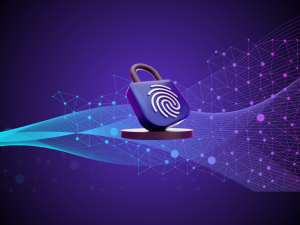It’s 2025—and how we learn, prove our skills, and get hired is no longer what it used to be. The idea that you need a four-year degree to land a meaningful role in tech or business is being quietly challenged by a fast-moving trend: digital credentials.
From nano degrees and micro-credentials to verifiable digital badges, these compact, skill-specific forms of learning are quickly going mainstream. And the question on everyone’s mind is: Are traditional degrees starting to lose ground?
Let’s explore what’s really changing, and why this matters for learners, professionals, and employers alike.
What Exactly Are Digital Credentials?
If you’re unfamiliar, digital credentials are bite-sized, skill-based certifications that are earned online and shared electronically. Think of them as a modern version of your college transcript—but focused on one specific skill or competency.
For example, you can now earn a digital badge for completing a course in network security, project management, or even AI ethics in a matter of weeks. These credentials are often issued by well-known institutions or tech companies and can be verified online by potential employers.
Why They’re Gaining Ground
So why are digital credentials becoming such a big deal?
1. Faster Learning, Faster Results
Traditional degrees take years to complete. In contrast, many digital credentials can be earned in a matter of weeks or months. That’s a huge advantage if you’re changing careers, upskilling, or trying to stay ahead of automation.
2. Focused and Relevant
While degrees cover broad topics (sometimes too broad), digital credentials go straight to the point. Want to specialise in ethical hacking? There’s a cert for that. Need to learn cloud architecture fast? There’s a digital badge for that too.
3. Cost-Effective
University tuition fees continue to rise, and student debt is a concern for many. Digital credentials are often a fraction of the cost and provide immediate, job-relevant value.
4. Skill-Based Hiring Is on the Rise
More and more employers are shifting from “degree required” to “skills required.” Big players like Google, IBM, and Accenture are leading the charge, dropping degree requirements for several roles and embracing micro-credentials as proof of ability.
According to the World Economic Forum, skills-based hiring has been identified as a key trend for improving both access to jobs and workforce diversity. In other words, it levels the playing field.
Are Traditional Degrees Still Relevant?
To be clear—traditional degrees aren’t disappearing. They still hold weight in many sectors, especially in regulated fields like law, medicine, or academia.
But here’s what’s shifting: the exclusivity of the degree as the only valid credential. Today, digital credentials are supplementing and sometimes even replacing the degree, particularly in fast-moving fields like IT, cybersecurity, and data science.
In fact, a recent report from Credly and Accredible found that employers are more likely than ever to consider alternative credentials in hiring decisions. Many are even building internal credentialing systems for ongoing workforce development.
Real-World Example: The Employer Shift
Imagine a hiring manager looking at two candidates:
- One has a bachelor’s degree in computer science from 2015.
- The other has a Google Cybersecurity Certificate earned last month, alongside a portfolio of hands-on projects.
Increasingly, the second candidate is getting the interview.
It’s not that the degree doesn’t matter—it’s just that in a rapidly evolving job market, current skills matter more.
The Job Seeker’s Perspective
For job seekers and career changers, digital credentials offer control. You no longer need to commit to four years of study before entering a field. You can build a learning path around your life—on evenings, weekends, or during career transitions.
Need to learn a skill quickly to stay relevant at work? There’s likely a nano-cert or micro-course that fits into your schedule—and your budget.
What About Employers?
Digital credentials aren’t just changing learning; they’re reshaping how companies hire and train.
Forward-thinking organisations are using micro-credentials to:
- Validate skills during recruitment.
- Upskill existing employees through internal credential programmes.
- Track continuous learning and development with digital transcripts.
In other words, they’re becoming part of the entire employee lifecycle—from hiring to training to promotion.
What the Future Might Look Like
If the current trend continues, we might soon live in a world where your digital learning portfolio holds as much weight—if not more—than your degree.
Instead of relying on a one-time academic achievement, your credentials could reflect an ongoing, flexible, and evolving set of skills. Think of it as a dynamic résumé that updates as fast as the tech you work with.
For educational providers, this means rethinking how programmes are designed. For students, it means more freedom and opportunity. And for employers, it means better talent alignment and faster hiring.
Final Thoughts
We’re living through one of the biggest educational shifts in decades. Digital credentials are proving that education doesn’t need to be long or expensive to be effective. They offer a new kind of credibility—one based on action, not just academic theory.
As the demand for job-ready skills continues to grow, and as more employers open their doors to alternative credentials, the smart move is clear:
Stay agile. Learn continuously. Build a portfolio of skills that speaks louder than a line on your degree.
If you’re ready to explore a career in IT, cybersecurity, or digital transformation, Ascend Education offers affordable, flexible training that gets you job-ready—fast.
Browse our courses and certifications today at ascendeducation.com.





